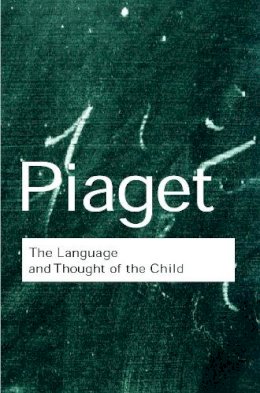10%OFF

Stock image for illustration purposes only - book cover, edition or condition may vary.
The Language and Thought of the Child
Jean Piaget
€ 23.99
€ 21.70
FREE Delivery in Ireland
Description for The Language and Thought of the Child
Paperback. When first published in 1923, this classic work took the psychological world by storm. Piaget's views expressed in this book, have continued to influence the world of developmental psychology to this day. Translator(s): Gabain, Marjorie; Gabain, Ruth. Series: Routledge Classics. Num Pages: 320 pages, illustrations. BIC Classification: CFDC; JMC. Category: (P) Professional & Vocational; (U) Tertiary Education (US: College). Dimension: 197 x 129 x 24. Weight in Grams: 348.
This book is for anyone who has ever wondered how a child develops language, thought, and knowledge. Before this classic appeared, little was known of the way children think. In 1923, however, Jean Piaget, the most important developmental psychologist of the twentieth century, took the psychological world by storm with The Language and Thought of the Child. Applying for the first time the insights of social psychology and psychoanalysis to the observation of children, he uncovered the ways in which a child actively constructs his or her understanding of the world through language. The book has since been a source ... Read more
Show LessProduct Details
Publisher
Taylor & Francis Ltd
Number of pages
320
Format
Paperback
Publication date
2001
Series
Routledge Classics
Condition
New
Number of Pages
320
Place of Publication
London, United Kingdom
ISBN
9780415267502
SKU
V9780415267502
Shipping Time
Usually ships in 4 to 8 working days
Ref
99-15
About Jean Piaget
Jean Piaget (1896-1980) Psychologist and pioneer in the study of child intelligence. His work is world-renowned and has had a profound effect on the fields of psychology, sociology, education, and law.
Reviews for The Language and Thought of the Child
'His theory of child development has influenced the way millions of schoolchildren have been taught.' - Times Literary Supplement 'Jean Piaget breaks startling new ground by showing us how a child's grasp of concepts develops as inevitably as his bones.' - The Observer
